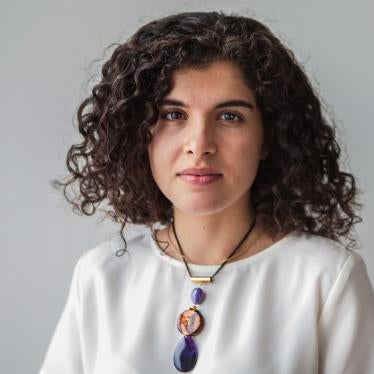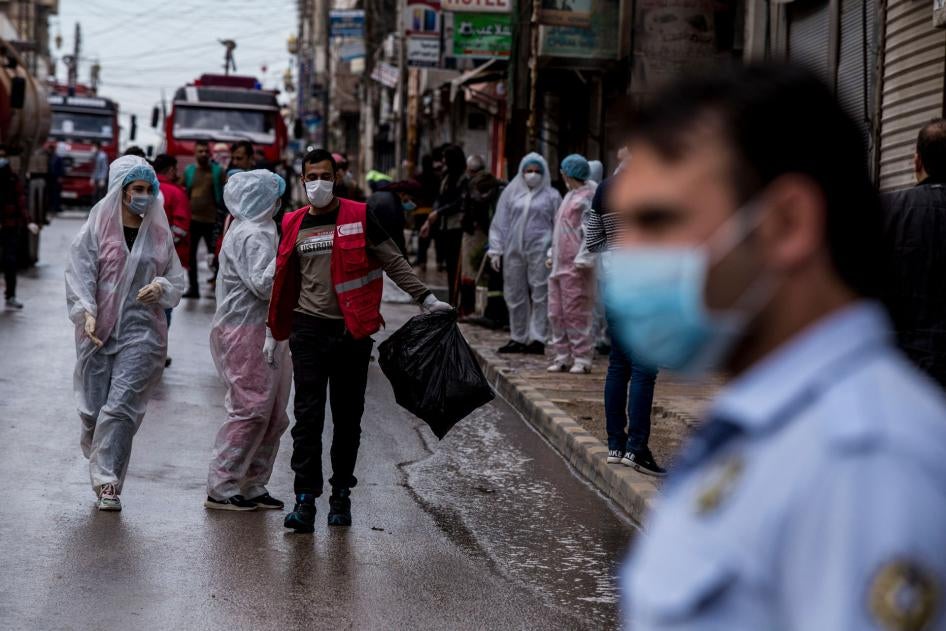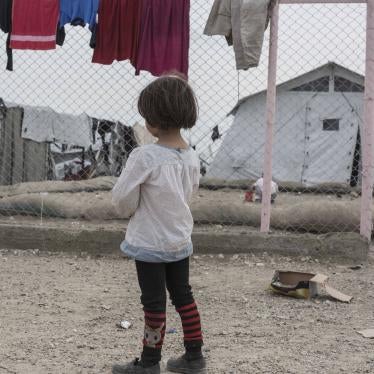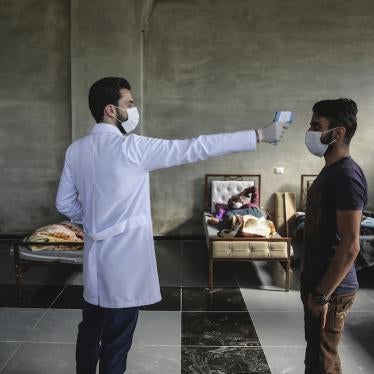Today, the ministerial phase of the fourth Brussels Conference on “Supporting the future of Syria and the region” begins, presenting an important opportunity for donor countries to support humanitarian efforts in Syria and neighboring countries. But for their aid to be effective, donors should go beyond discussing financial contributions and develop a plan to ensure that aid reaches the people who need it most, without discrimination.
Since the beginning of the armed conflict, the Syrian government has effectively held the humanitarian system hostage through arbitrary delays in providing approvals for aid operations, allowing security forces to steal hard-won supplies, and placing significant restrictions on humanitarian agencies’ ability to enter and operate in areas formerly held by anti-government groups. The result has been a “rigged system” preventing humanitarian agencies from reaching everyone in need in a rights-respecting manner.
Last January, the Syrian government, through its ally Russia, created another obstacle for aid response by closing al-Yarubiyah, the only crossing the United Nations could use to provide medical and other supplies to northeast Syria, and required that all supplies go through Damascus instead. Human Rights Watch and others have found that the restrictions imposed by the government, coupled with the closure, have compromised humanitarian actors’ ability to provide medical supplies in response to Covid-19, jeopardizing the right to health of two million people in the region. On July 10, the UN’s entire cross-border supply mechanism will expire.
Humanitarian needs in Syria are greater than ever. The Covid-19 pandemic, burgeoning food insecurity, and a debilitating economic crisis are threatening already vulnerable people. Donors should do everything in their capacity to help Syrians.
For this to happen, humanitarian support from donors should be coupled with broad action to ensure the UN Security Council cross-border mechanism is renewed for another year, with the al-Yarubiyah crossing reauthorized.
Donor countries should also develop a centralized mechanism that allows them to implement standardized criteria to ensure all aid operations are nondiscriminatory and comply with human rights and humanitarian principles.










